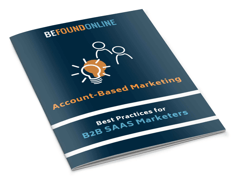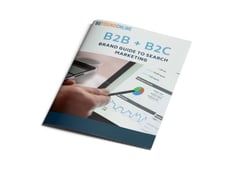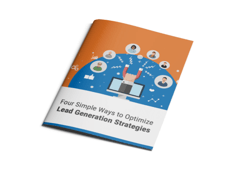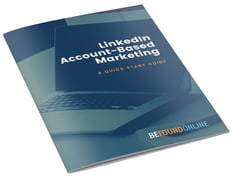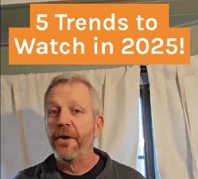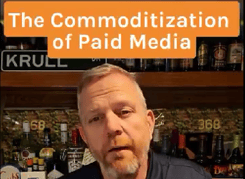
SEO and SEM campaigns are two different processes aligned toward the same purpose: to bring traffic to your website. Rather than keeping your SEO and paid search campaigns separate, it may be in your best interest to unite the two. Generally speaking, a collaboration between SEO and SEM campaigns is beneficial and can yield great results. Here’s why.
Transparency, Consistency & Optimization
By having SEO and SEM under one umbrella, a single agency can optimize performance across both channels, thanks to transparent data you provide. Keeping both campaigns under one roof allows the agency access to consistent data. When looking at raw data, we want to be able to rule out any possible variables between data and optimization.
Driving Content Suggestions & Paid Performance
You know who is converting on your site, and you have the power to see what’s hot and what isn’t. By utilizing paid data, we can push out those top products or services to the most relevant users and drive highly qualified, interested leads back to your site. Keeping SEO and SEM campaigns together allows us to find the content that resonates best with each customer and find new users based on top-performing products and content.
Driving Content & Optimization with Social Advertising
When you talk about paid services, social needs to be a part of the picture. In March 2015, Facebook and Twitter accounted for over 30% of all display ad revenue. Facebook is already the largest revenue driver for display, and Twitter is set to overtake 3rd place this year.
Social offers the option to target your ideal customers by demographics, interests, behavior, and remarketing. Having a strong social presence helps to fill in the gap where search and direct traffic can’t give us data. For instance, setting up campaigns for specific interests and driving various promotions by location could give us a real understanding of what content should be served on your site to capture the ideal audience. With the sheer number of users on social platforms, ad serving on these sites gives the opportunity to test content with your audience before you publish.
Utilizing Paid Keyword Data
In 2013, Google switched to secure search, which meant no more organic keyword data would be given to site owners. It’s no secret in the SEO world that the loss of access to keyword data in Google Analytics created a major hurdle to SEO managers and their campaigns. Google Analytics users are no longer able to see keywords that drive organic search.
SEO managers have created methods, such as understanding the relationship between content and pages, but having a paid campaign is a game-changer. Paid search is built on buying keywords. If SEO teams can collaborate with SEMs, well-performing keywords can be integrated into SEO campaigns. This priceless data and collaboration help drive success in SEO campaigns.
Google AdWords & Webmaster Tools Integration
When linking AdWords and Webmaster Tools, we are able to see user search queries for both paid and organic search. We can also see what queries trigger our ads vs. organic listings, and the combined total between the two channels. Pulled right from Google’s own help page, “A few use cases for Paid and Organic Reports would be to discover additional keywords, optimize a presence on high-value queries and measure changes holistically.” Integrating paid and organic data, in other words, allows us to work more efficiently and effectively to drive campaign results in both areas.
Making SEO Teams More Efficient
From an SEO perspective, linking AdWords data with webmaster tools and analytics information provides invaluable keyword data to us as SEOs. What makes this data so powerful is the marriage of inbound keywords and click behavior. We can understand not only the keywords that have led to our pages appearing in search rankings, but also exactly which have been clicked on, and at what rates. This data helps SEOs better target campaigns and take some of the guesswork out of finding optimal keyword combinations. Leveraging this data is literally priceless.
Additionally, combining SEO and SEM gives us the ability to understand our organic presence vs. AdWords ranking presence. This, again, is important for SEO, as it allows us to prioritize which keywords and ranking pages might need the most help to build organic rankings (versus having to purchase those keywords as AdWord buys). We can also do the opposite and pull AdWord buys back from high organically ranked pages, saving budget in the process.
The bottom line is that when you combine a solid paid strategy with an intelligent, proactive SEO team, the benefits are innumerable. At the end of the day, the marriage of SEO and SEM makes both sides more efficient, and ultimately more successful.

The BFO Team
Here at BFO, we're always striving to bring you the latest and greatest in digital marketing insights and education. We're not ones to brag, but we've been lucky enough to be featured in all sorts of fancy publications and media outlets, strutting our stuff and showing off our industry expertise.
CATEGORIES
SUBSCRIBE TO OUR BLOG
Stay up to date with the latest industry best practices in digital marketing!














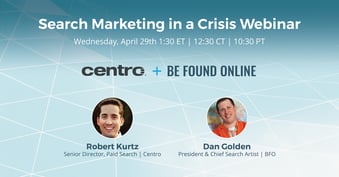

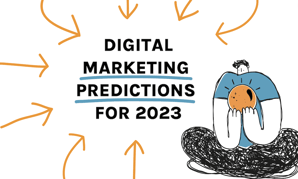
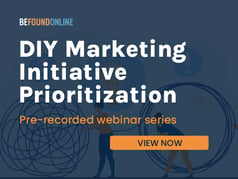





.png?width=339&height=179&name=Webinar%20Banner%20(1).png)

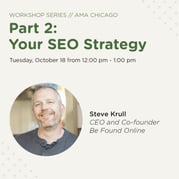

.png?width=339&height=179&name=July%20Webinar%20(Newsletter).png)

.png?width=339&height=179&name=Webinar%20Banner-April-02%20(1).png)
%20(4).png?width=339&height=179&name=Webinar%20Banner-May-02%20(1)%20(4).png)




.png?width=339&height=179&name=March%202023%20Webinar%20Ad%20(autoresponder).png)

